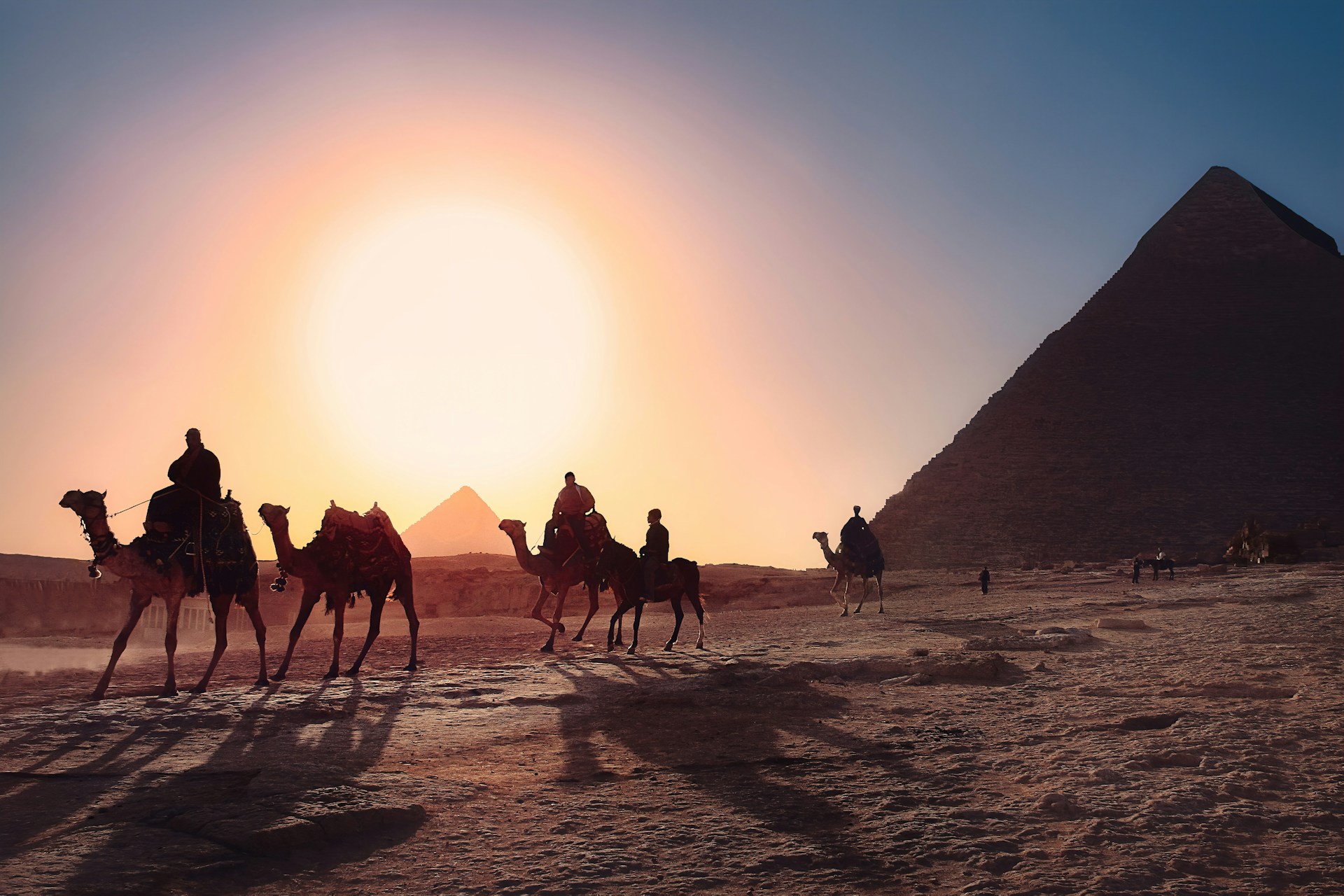Not Knowing the “I”

This week’s Dvar Torah was adapted from one written by Nancy Weiss, LCSW, a depth psychotherapist, spiritual director, and Mussar facilitator dedicated to helping others discover unique pathways to their soul’s expression. She facilitates local and online Mussar groups and is a member of The Mussar Institute’s Facilitator Development Council.

Photo by Cris Trung on Unsplash
I have always felt a resonance with [Parashat] Vayetzei (Bereisheet / Genesis 28:10-32:3)... I consider dreams to be divine messengers. In the language of nuance, metaphor, and pun, they speak to us of visions and callings from unknown places. Dreams hold the power to bring awe, to surprise, to delight, to terrify, and to transform.
After fleeing from his family home, Jacob, alone and bereft, falls asleep in a rocky desert landscape, with a stone beneath his head. There Jacob dreams of a ladder set up on the ground and reaching to heaven, with angels ascending and descending. And standing over him is God. “I am YHWH [1], the God of Abraham your father, and the God of Isaac... V’hinei anochi imach: I am with you. [2]
An ordinary place becomes infused with light and pulses with a divine essence: YHWH bamakom hazeh ve’anokhi lo yadati / “God is in this place and I, I did not know,” Jacob exclaims when he awakens. [3]
Rabbi Lord Jonathan Sacks elaborates:
“When Jacob wakes from his sleep… he says, “Surely the Lord is in this place ve’anokhi lo yadati.” Anokhi means ‘I.’ In this sentence, it is superfluous. To translate it literally we would have to say, ‘And I, I did not know it.’ Why the double ‘I’?
To this, Rabbi Pinchas Horowitz (Panim Yafot) gave a magnificent answer. How do we come to know that ‘G-d is in this place’? By ve’anokhi lo yadati — not knowing the I. We know G-d when we forget the self. We sense the ‘Thou’ of the Divine presence when we move beyond the ‘I’ of egocentricity. Only when we stop thinking about ourselves, do we become truly open to the world and the Creator of the world.” [4]
In this moment, Jacob’s sense of himself begins to shift as he embodies the Divine within him. His awareness that he is no longer alone opens a portal to even greater amazement, mixed with fear: "How awesome is this place! This is none other than the house of God, and this is the gate of heaven.” [5]
For a brief moment close your eyes and recall a time when you were absorbed in an experience larger than yourself. What stands out to you about this experience?
In the words of Rav Avraham Eliyahu Kaplan,[6] the middah Yirah, is a “pathway of illumination… the broad jump over the vast gap between myself and my Creator... Fly over barriers… for there you will find… the source of existence.” Rav Kaplan suggests that this is when one has “a direct relationship... true sight.” [7]
In Abraham Joshua Heschel’s words:
Awe is an intuition for the dignity of all things, a realization that things not only are what they are, but also stand, however remotely, for something supreme.
Awe is a sense for the transcendence, for the reference everywhere to the mystery beyond all things. It enables us to perceive in the world intimations of the divine, to sense the ultimate in the common and the simple; to feel in the rush of the passing the stillness of the eternal. [8]
Yirah is at the core of my spiritual practice. My kavanah / intention is to open a “pathway of illumination” by noticing the smallest and most ordinary details as I move through my day. To the extent that awe invites us into relationship with Divine Presence, each experience of awe is deeply personal. For me, there is a sense of gravitas and profound connection.
What might you do to bring a sense of wonder to the “common and simple” items and routines in your daily life?
The elements in our dreams carry the power to transform: in Vayetzei, a ladder extending upward, angels ascending and descending, and an experience of God’s Presence assuring Jacob that he is not alone. In what had been a most ordinary place, filled with pebbles and large rocks, Jacob is surely blessed with what Rav Kaplan perceives as “a direct relationship... true sight” of the Divine…
Many times, I find God in unimaginably beautiful and awesome moments, but these dreams call me to experience God in the everyday, in the home-y, down-to-earth moments…
Please forgive what might seem to be my hubris in aligning myself with Jacob. I might assure you that I am only aligning myself with a dreaming man, but this demeans the essential nature of his experience and mine.
I have learned that I too can encounter the Divine Presence in an ordinary place that is rich with meaning. I submit that you too can experience the shifting of an ordinary moment into something unexpected and evoke a sensation of awe that can take your breath away.
May your Shabbat be blessed with a sense of wonder and joy.
- The ineffable Name of God.
- Genesis 28:10-15 (excerpted)
- Genesis 28:16
- Lord Rabbi Jonathan Sacks, “When the I is Silent,” Covenant and Conversation
- Genesis 28:17
- Rabbi Avraham Eliyahu Kaplan (1890-1924) was a primary student of the Alter of Slabodka, who wrote a well-known Mussar essay entitled, “In the Footsteps of Yirah.”
- Rav Avraham Eliyiahu Kaplan, “B’ikvos Ha’Yirah” - “In the Footsteps of Yirah."
- Abraham Joshua Heschel: I Asked for Wonder: A Spiritual Anthology, p.21 (Edited and with an Introduction by Samuel H. Dresner: The Crossroad Publishing Company
FOR FOCUS
- What middot can you call on to support your practice of yirah / awe? For example, you might consider hakarat hatov / gratitude, sh’tikah / silence or kavod / honor, in addition to others.
- Set a kavanah to notice intimations of the Divine as you move through your day. Journal the impact of these intimations.
- Notice any barriers that get in the way of you finding these intimations of the Divine.
- Choose a room or space in your home and spend some time there in silence. Look around you closely, and see this space through fresh eyes, bringing a sense of wonder to what you have come to take for granted. Journal what has been illuminated simply through your noticing.
- Now, repeat this exercise in an outdoors setting, bringing fresh eyes and wonder to whatever you notice. Be sure to journal any illuminating moments.
- Bring attention to your dreams and consider the messages they might be carrying.
Shabbat Shalom




